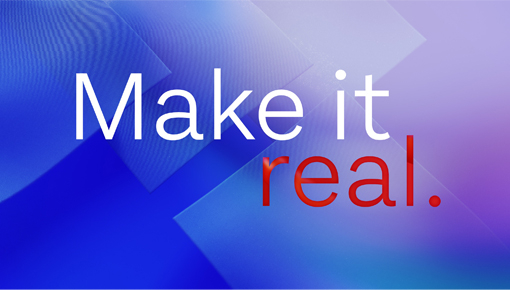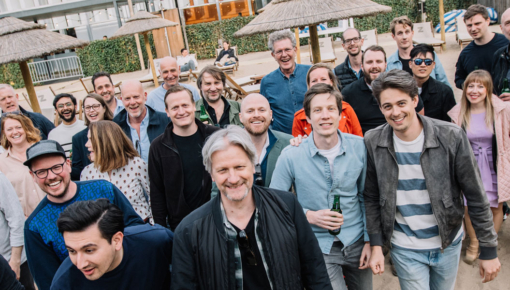Qindle launches Qindle Ventures
dream big
Innovation and design agency Qindle exists five years. In that period, founders Taco Schmidt, Ype Jorna and Wolter Prinsen have developed the agency into a fully-fledged, internationally operating agency that is situated on the cutting edge of consultancy, creativity, and commerce. ‘We have a deep ambition for sustainable growth.’
It’s the first day above twenty degrees Celsius in May when FONK reports to innovation & design agency Qindle. Co-founder Taco Schmidt immediately suggests going out on a terrace because of the nice weather and continue our conversation that started five years ago. Once we are settled under a cheerfully waving parasol, we effortlessly pick up the thread again. This time, co-founder Ype Jorna is missing, and newcomer Jasper van Houten joins us. And not without reason, because Taco and Ype have taken advantage of this anniversary year to add a new member to the family.
family day
Taco: ‘We’ll be celebrating our fifth anniversary at several times throughout the year. In early June, we’re going to Valencia for a long weekend with the studio and in September we’re planning a Qindle family day. Towards the end of the year, we’re planning a booklet for our business relations. In addition, the Qindle team is busy working for their clients, because after Corona the amount of work has certainly not dried up. And with the arrival of Jasper van Houten, the new Qindle Ventures is in the pipeline’, says Taco.
The left hemisphere is just as important as the right hemisphere in Qindle
connector
Jasper: ‘I’ve just been with Qindle for two months, and I feel I’ve found my way in the agency. I can’t wait to get started and tell the story of Qindle Ventures,’ he says with an energetic smile that also reveals a hint of impatience.
‘I studied industrial design in Delft and worked for various corporations with a focus on food and drink. The enterprising Jasper van Houten also has his own design and innovation agency and two start-ups with own products to his name. Jasper: ‘Those start-ups were an adventurous period and the direct link to Qindle.’
‘Taco, Ype and I met at the end of last year without any immediate plans,’ continues Jasper. Taco told us that in addition to the corporates the agency works for, more and more start-ups are finding their way to the agency, so there was a very nice click with my background. During our talks we started planning for Qindle Ventures. Our goal: to help start-ups and scale-ups in an effective way.’
What is your personal added value in the Qindle team?
‘I am a good connector. Thanks to my studies in Delft, I am also a generalist. I can go far enough along with a technician to make the translation into a good commercial plan. ‘
innovation lab
Taco: ‘We feel like we are in our teens right now: self-confident enough to know who we are and open-minded enough to dare to dream big. That’s why we were looking forward to the next adventure. This year will not just see the launch of Qindle Ventures, as the Qindle Innovation Lab will also take shape in collaboration with Philips and the University of Amsterdam. But first back to Qindle Ventures. What does Qindle Ventures deliver and how is it currently taking shape?
‘We will initially talk to several venture capital companies. From our background, a focus on foodtech and healthtech is obvious. The idea is to use our knowledge and experience to help venture capitalists bring the start-ups they finance to the market as efficiently as possible. This way we create a win-win situation for everyone.’
Taco: ‘There are enough good ideas right now and there is enough money. Because Qindle has experience with supporting start-ups in Silicon Valley, we have a proven track record. Not unimportant when you talk to critical venture capitalists who go for value for money.
Our playing field is innovation and design, coupled with commercial knowledge; I think that combination is a unique proposition from which start-ups can profit optimally. We combine the creative with the analytical. At Qindle, the left hemisphere is just as important as the right hemisphere.’
corporates of tomorrow
Self-conceit is inherent in business start-ups. How will you convince these people of your added value in the process?
Jasper: ‘That is certainly a value that characterises almost all start-ups. It has a positive, but also a negative side, which can be blinding and as a result the entrepreneur may lose valuable time. And that means that, as an agency, we must have the courage to bang our fist on the table every now and then. But if the cooperation is balanced, one of the nicest things about working with start-ups is that, in principle, you can very well grow as an agency with such a company. They are the corporates of tomorrow.’
Taco: ‘Serving creative leadership and showing leadership at the same time; in that combination lies our -proven- added value.’
Start-ups Plantible and Foamplant from Groningen, both of which Qindle assisted in optimising their proposition, are two examples. ‘We have developed a valuable go-to-market strategy for both brands’, Taco says not without some satisfaction.
There are more and more corporates that want to make room to place incubators next to their core business and are also willing to put money into it, Taco knows. It is therefore possible that Qindle Ventures will also be able to play an intermediary role between start-ups and corporates at relevant times.
‘We can use our experience and our network to see how it works on each occasion and, if it’s relevant, bring start-ups into corporates.’
open to adventure
Now that the first five years are over, where will Qindle be in ten years?
Taco: ‘We have a deep ambition for sustainable growth. Our added value lies at the front end because we are creative consultants. For an organisation like ours, around forty people is a limit, where the logical consequence is that you then grow a new hub elsewhere. Silicon Valley could be a very good option because we are already active there. Corona has delayed our ambition of international expansion somewhat. But our core also includes the fact that we are always open to new adventures. Qindle Ventures has also come our way and we have every confidence that it will succeed. Good entrepreneurship means being open to adventure, while at the same time building in enough certainties for a healthy business model. Because we have opted for the role of creative consultancy instead of a production studio, we make margins that leave room for active entrepreneurship.’
three basic values
In its daily work for new and existing clients, Qindle will keep an open eye for relevant new developments. According to Taco, for example, sustainability is becoming part of the basic hygiene of every company. But what remains constantly relevant is paying attention to the real added value of products and services in a rapidly changing world. The balance between economic value, brand value and social value (including sustainability, equality, etc.) together determine the success of a company in the future; like three communicating vessels they influence each other. If one of these elements is not in order, the brand will not succeed in its mission.
‘Our cooperation with QWIC E-bikes is a good example. This brand faces a challenge in terms of supply chain, technology, and their proposition. Only if you can address and connect all three elements in an integral way, you will solve the challenges the company faces. Now, we are working on the future portfolio as part of the proposition, and we are tackling this as part of the overall approach. Our added value lies in solving such puzzles. It is in solving puzzles that we have the most fun.’
This article was first published (in English and Dutch) in FONK Magazine 338 edition.


